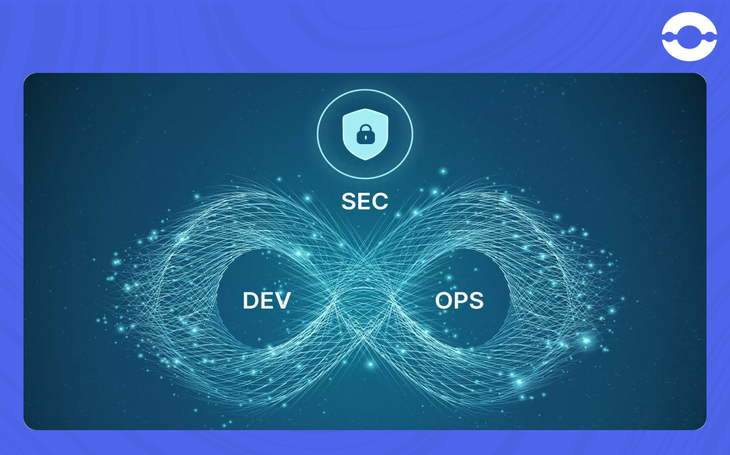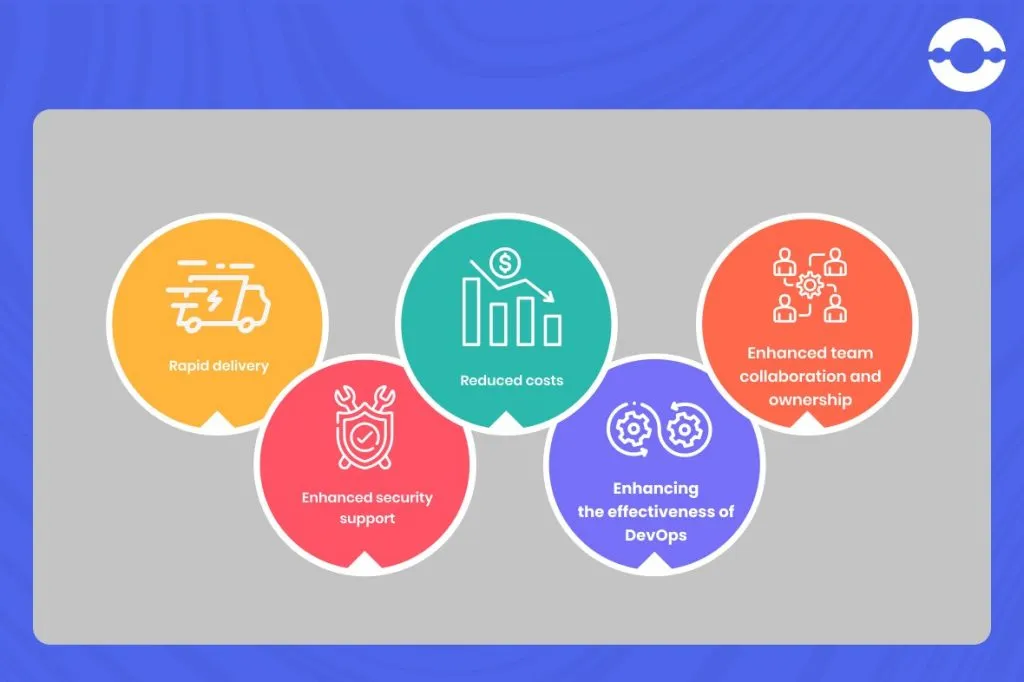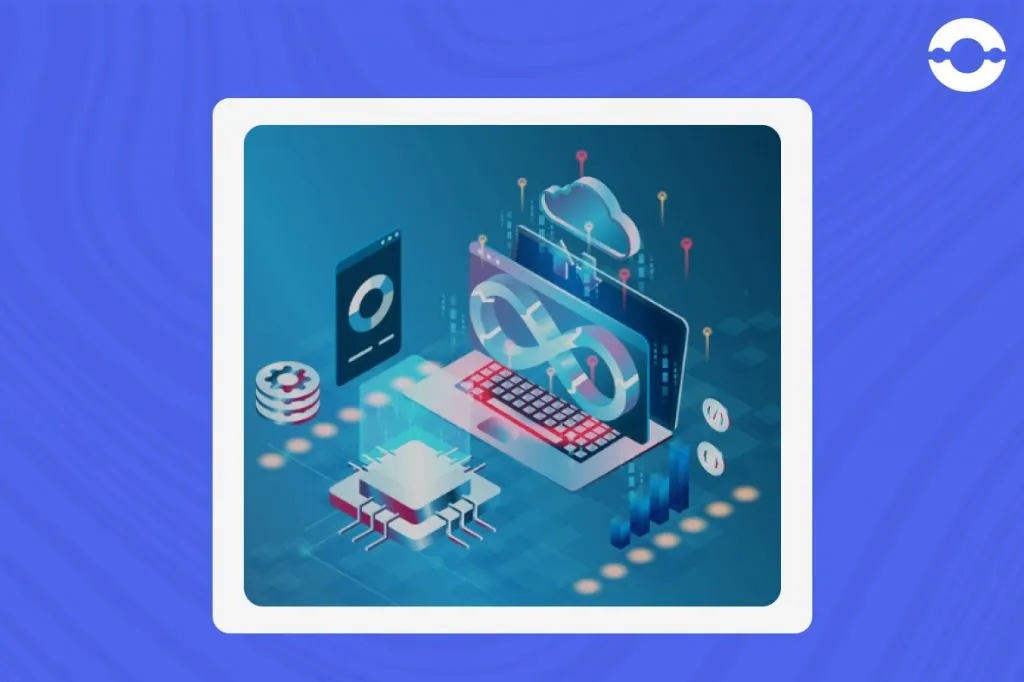
DevSecOps is a practice that ensures DevOps security and ensures the development of secure, reliable, and scalable software.
Let’s know more about DevSecOps in this blog and note how DevOps security benefits a business.
What Is DevSecOps?
DevSecOps is a combination of development, operations, and security. It’s a practice under DevOps that pays special attention to the security of software through automation.
Application and infrastructure security practices are prioritized and integrated from the very beginning, at every stage of the software development process.
Importance Of DevSecOps
Traditionally, security provisions and practices were often carried out late in the development process by a specific team. However, with rising cybersecurity attack rates, as well as a shift to shorter, more frequent iterations on applications by the development teams, the practice of DevSecOps or DevOps security has taken prevalence in the modern product development environment.
Integrating security as a shared responsibility end-to-end in the entire tech and IT lifecycle, ensures other DevOps practices and initiatives are effective.
Let’s Discuss 5 Key Benefits Of Practicing DevSecOps:

1. Rapid Delivery
Security practices are integrated into the CI/CD pipeline, which enables DevSecOps teams to identify and fix bugs before deployment. This in turn allows developers to prioritize shipping features.
Elimination of the need to retrofit security controls after development further reduces the cost and time of software delivery.
2. Enhanced Security Support
Security is implemented from the design phase onwards. Automating the infusion of security at every stage of the product development lifecycle, from design to development, testing, hosting, and software delivery ensures a robust security posture of the software.

3. Reduced Costs
The DevSecOps services or practices allow scanning and patching of common vulnerabilities and exposure, as well as identification of other issues and bugs before deploying the software. This helps to reduce risk as well as operational costs.
4. Enhancing The Effectiveness Of DevOps
Outdated security practices can undo the most efficient and cost-effective DevOps initiatives. Thus, enhancing the overall security structure as a culture of collaboration and shared responsibility through DevSecOps increases the effectiveness of other efficient DevOps practices.
5. Enhanced Team Collaboration And Ownership
The practice of DevSecOps creates synergies between development teams and software security teams early in the product development process, facilitating collaborative cross-team practices and approaches.
Another major factor that makes DevSecOps an essential practice is the rapid shift that organizations are making from on-premises software deployment to hosting software on the cloud to leverage its extensive benefits including operational costs and management hassles.
Related Blog: Feature And Uses Of DevOps
Why DevSecOps Is Important In Cloud Computing

Businesses have two options for software deployment. The first is the on-premises data center and the other is cloud computing. While the former involves a group of servers privately owned and controlled by a business, the latter involves data center resources that are leased from a third-party service provider.
Although on-premises software deployment is a safer option due to businesses’ complete control over the operations and accessibility of the software, business data, and sensitive user information, cloud computing is changing the hosting game for businesses due to its far-reaching benefits.
It eliminates the hassle of setting up, maintaining, and updating hardware and systems, facilities instant business insights, and quick application deployment, among other benefits. Cloud technology is the cost-efficient option and has enabled companies to easily scale and adapt, bring in business agility, and streamline operations.
However, every good thing comes at a cost. Companies adopting cloud computing, more often than not, face security hurdles and concerns. It makes businesses more prone to cyberattacks, data breaches, and other online threats.
A machine identity management company, Venafi, carried out a study about the complexity of cloud environments and their impact on cybersecurity in 2021. According to the study, 51% of security decision-makers (SDMs) thought that cloud-based security concerns were greater than those associated with on-premises security.
Security Issues Associated With Cloud Computing Are:
1. Security system/ settings misconfigurations resulting in cloud data breaches; between 65 and 70% of all cloud security issues arise from security misconfigurations
2. Cloud-based deployments are outside the network environment/perimeter of a business and directly accessible from the public Internet, increasing the risk of unauthorized access and data loss/ leakages
3. Insecure Interfaces/APIs
4. Accounts hijacking; this takes place due to password reuse and the use of weak passwords
5. Collaboration feature; enabling anyone with the URL to access the shared resource, and exposing the data to cyberattacks
Facebook or Meta’s cloud security was breached back in 2019 and decided to keep it from its users. The personal data of around 530 million users was stolen in this breach.
The company Facebook paid a $5 billion settlement amount to the U.S. Federal Trade Commission and the incident tainted its reputation with one whistle-blower publicly claiming that Facebook values profits more than safety.
Companies like Alibaba, LinkedIn, and Accenture have also been victims of cloud security issues. Alibaba faced a user data attack in 2019, that had an impact on more than 1.1 billion pieces of user data.
LinkedIn suffered data scraping breach in 2021, which affected 700 million LinkedIn profiles, while Accenture was hit by attackers who stole and leaked proprietary corporate data and, breached its customers’ systems.
Therefore, to eliminate or mitigate these cloud security issues and threats, a business needs to walk the extra mile and employ DevSecOps or DevOps security practice in order to ensure the safeguarding of business details/credentials, sensitive information, and data stored on software deployed on the cloud.
DevSecOps teams consist of multi-skilled experts in the field of cloud and cybersecurity working together under one, common operating system.
DevSecOps In The Cloud Offers:
1. The room and pace to innovate through Security Automation
2. Effective security validation of instance deployments
3. Risk-based actions on time
4. Automated incident response and remediation
DevSecOps in the cloud goes beyond looking after just the CI/CD cycles (as the case with DevOps). Instead, it is primarily about ‘Security Automation’, which is imperative to cloud operations.
DevSecOps service is one of the most popular options in the Venafi study, with 14% of participants giving it as an answer to who should be responsible for maintaining the security of cloud-based applications.
With the benefits a business reaps through DevSecOps, the market for DevSecOps is expected to increase at a CAGR of 28.85 percent from 2020 to 2025, contributing to a market value of US$ 6.5 billion by 2025.
Conclusion
DevSecOps or DevOps security is an integral practice that should be a part of any business’s cloud strategy. It ensures that the software developed and deployed is secure and reliable. Even businesses going for an on-premises data center should practice DevSecOps to ensure the security of business data and user information.
Every business opting for cloud computing should especially complement it with DevOps security services to eliminate cyber-attacks, data leakages, and other online threats. Combining cloud computing and DevSecOps facilitates automated and quick product development and monitoring. It is used to secure DevOps practices and activities.
FAQs
Some common DevSecOps tools are:
1. Open-Source Vulnerability Scanning
2. Static Application Security Testing (SAST)
3. Dynamic Application Security Testing (DAST)
4. Image Scanning
5. Infrastructure Automation Tools
6. Infrastructure Automation Tools
Some best practices for incorporating security testing into CI/CD pipeline are:
1. Establish security development practices before CI/CD
2. Develop continuous testing into CI/CD pipelines
3. Automate data security procedures inside CI/CD
4. Implement zero-trust principles to secure the CI/CD pipeline
5. Validate deployments by integrating CI/CD with AIops and security automation
Automated security procedures are integrated across the whole product development lifecycle under the DevSecOps methodology, from design to integration, testing, hosting, and software delivery. This ensures an enhanced organizational security posture.
Also Read: DevOps Methodology




